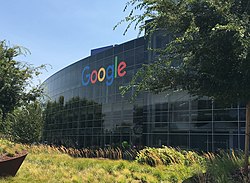How Does Google Make Money? Unveiling the Business Model of a Tech Giant

Ever stopped to wonder how Google, the internet's benevolent giant, keeps the lights on? After all, we use its services – search, Gmail, YouTube – without shelling out a dime. With a market cap exceeding $2 trillion, it's clear they're doing something right. So, let's pull back the curtain and explore the fascinating world of Google's business model.
From Humble Beginnings to Global Domination
Google, born in 1998 as a college project by Larry Page and Sergey Brin, started with a simple yet ambitious mission: organize the world's information and make it universally accessible and useful. Remember those early, text-heavy search pages? Yeah, that was Google in its infancy.
Their name, inspired by the number "Googol" (a 1 followed by 100 zeroes), reflected their goal of indexing an unimaginable amount of data. Today, "Googling" has become synonymous with searching the internet itself, showcasing the brand's unparalleled dominance.
The Birth of a Money-Making Machine: Google Ads
While information organization remained key, Google needed a way to monetize its services. Enter AdWords in 2000, now known as Google Ads, the cornerstone of their revenue stream. Businesses could finally pay to display their ads on Google's search results pages, connecting with potential customers at the precise moment they were searching for relevant products or services. This marked the beginning of Google's extraordinary financial journey.
An Empire Built on Innovation (and a Few Flops)
Over the years, Google's portfolio expanded beyond search, offering a suite of free products like Gmail, Google Maps, Android, and the acquisition of a little platform called YouTube. This relentless pursuit of innovation, however, wasn't without its stumbles. Remember Google Plus, their attempt to rival Facebook? Or Google Glass, the futuristic eyewear that never quite found its footing? These failures, while significant, highlight an essential truth: innovation demands risk, and even giants stumble on their path to success.
So, How Does Free Translate to Billions?
The million-dollar question (or should we say billion-dollar question?) remains: how does a company offering free services become a financial titan?
The answer lies in a two-pronged approach:
1. The Freemium Model: Try Before You Buy
Google, like many successful companies (Spotify, LinkedIn, Zoom), has mastered the art of the "Freemium" model. This means they offer basic services for free, enticing users to upgrade to premium, paid versions for enhanced features or additional storage. Think Gmail with its free 15GB storage or YouTube with its ad-supported model and the option to pay for Premium ad-free viewing. This "try before you buy" approach is incredibly effective, even if only a small percentage of users opt for the paid versions.
2. Data: The Currency of the Digital Age
Here's the thing about "free" services: they're not entirely free. We "pay" with something far more valuable: our data. Every search, every video watched, every email sent, provides Google with invaluable insights into our preferences, habits, and desires. This data, anonymized and analyzed, becomes the fuel for Google's powerful advertising machine.
Targeted Advertising: The Engine That Drives Revenue
Google's advertising prowess lies in its ability to connect businesses with their ideal customers through laser-focused targeting. Remember that time you searched for "best hiking boots" and suddenly saw ads for outdoor gear everywhere you went online? That's Google's data-driven advertising at work.
Here's a simplified breakdown:
- Data Collection: Google analyzes your search history, browsing behavior, location, and demographic information to create a detailed user profile.
- Advertiser Targeting: Businesses can target specific demographics, interests, keywords, and even geographic locations when creating their ads.
- Matching the Puzzle Pieces: Google's algorithms match users with relevant ads, ensuring businesses reach potential customers who are most likely to be interested in their products or services.
The Future of Google's Business Model: Challenges and Opportunities
Despite its dominance, Google's advertising-reliant model faces emerging challenges:
- Privacy Concerns: Growing awareness of data privacy and regulations like GDPR (General Data Protection Regulation) are prompting users to become more selective about the information they share online.
- Competition from AI-Powered Chatbots: The rise of AI chatbots like ChatGPT, offering direct, ad-free answers to queries, poses a potential threat to Google's search-based advertising model.
However, Google, known for its adaptability, is already developing its own AI solutions like Gemini. This continuous evolution, with companies vying for user attention and loyalty, ultimately benefits us, the consumers, as it drives innovation and enhances the online experience.
The Bottom Line:
Google's ability to provide valuable, free services while simultaneously building a multi-billion dollar advertising empire is a testament to its innovative business model. While challenges lie ahead, one thing is certain: Google will continue to adapt, evolve, and shape the future of how we interact with information and technology.
Want to learn more about how search engines are changing? [Insert Relevant Anchor Text Here]



COMMENTS